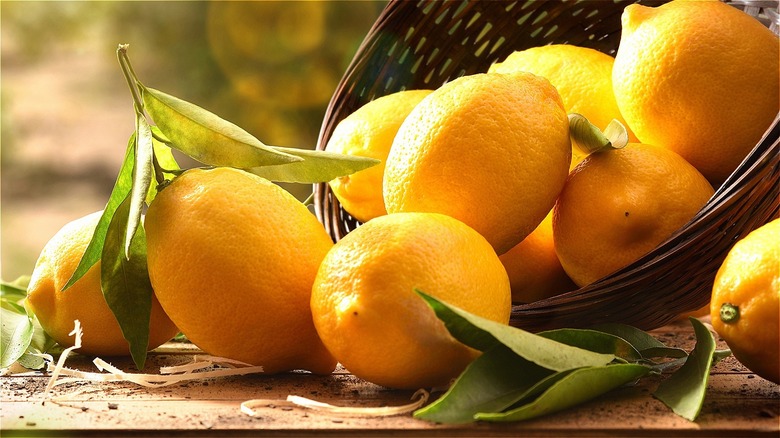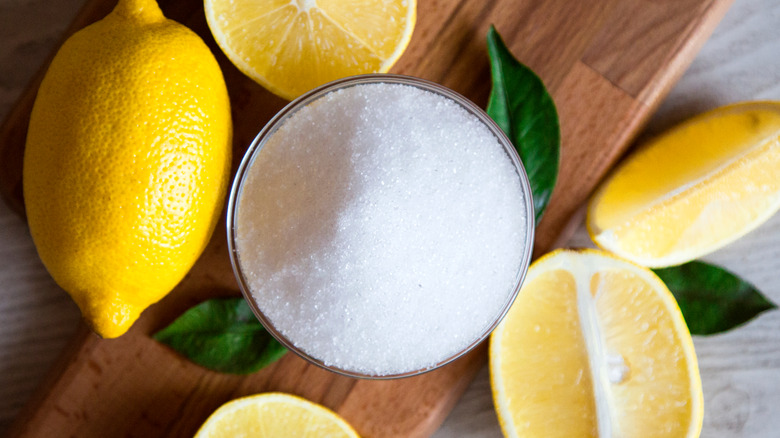The Shelf-Stable Substitute For Lemons You Should Have In Your Pantry
You may find eating a fresh lemon to be too sour for your taste, but that tart flavor is exactly the reason you include the fruit in your groceries. Where lemons actually originated may be a mystery, but we have been consuming them for more than 2,000 years. Proving their continued popularity centuries later, lemon buffs in the U.S. munched on about 1.5 million metric tons of lemons in 2021, coming second to Mexicans, who chomped up 2 million metric tons, according to data published by IndexMundi.
Just why are these fruits so commonly used? According to Healthline, lemons don't just add their signature acidity and citrusy flavor to lemon recipes; they also help give jams their jelly-like texture and even act as a leavening agent in baked goods. Nevertheless, a lack of lemons in your pantry (whether it's due to their fairly expensive price or other reasons) may necessitate a substitute.
Healthline suggests oranges, though these aren't quite as tangy as lemons and may lend too sweet of a fragrance to your recipe. White wine would work as an alternative acidic component in cooked dishes, but would be a no-go in almost anything raw. And while lime juice could do the trick, these fruits aren't quite as convenient as another, often-overlooked substitute for lemons. If you're looking for the best, most shelf-stable alternative, one beats them all: citric acid, which should always be in your pantry.
Citric acid is more than just a lemon substitute
Citric acid, "the primary acid in citrus, can be used as a substitute for lemon juice," Cook's Illustrated advises, adding that it should be used "in applications where complex lemon flavor isn't necessary, only brightness or acidity." According to LiveStrong, citric acid is a shelf-stable powdered substance that is commonly known as "sour salt" and has about the same acidity as lemon juice. It's used not only in food, but also for health and cosmetic purposes, so you can find it anywhere from a supermarket to a craft store.
The best way to use citric acid in place of a squeeze of lemon is to combine ⅛ teaspoon of the acid with a tablespoon of water, which gives you similar results as a tablespoon of lemon juice. However, keep in mind that this substitute won't taste exactly like lemons; it will only replicate their acidity. In addition to acting as a good substitute for lemons, citric acid goes further. It plays an important role in preventing food spoilage in canned foods prepared at home, and, like lemon juice, it keeps apples and other peeled produce from browning as quickly.

